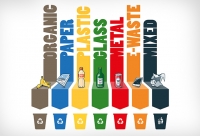

This policy research paper aims to draw the attention of stakeholders in Georgia’s energy sector to the issue of prices, their importance in energy security, and electricity supply security. The paper firstly reviews the existing academic and policy literature and afterwards analyses the current structure of the wholesale electricity market in Georgia to identify different prices and payment schemes. This analysis of the Georgian regulatory framework, along with current data and tendencies, allows us to identify some fundamental issues that are inherent in the structure of the ongoing wholesale electricity market in Georgia. As a result, this policy research paper highlights some challenges that need resolving in order to strengthen the security of supply in the electricity market.

The paper attempts to analyse possibilities for energy transit from Iran to Georgia and further to the Western markets that have recently opened to energy supplies from Iran as international sanctions have been lifted. Iran, estimated to be the world's fourth-largest country by proven oil reserves1, and first or second by gas reserves2, is in the process of reclaiming its share of gas and oil exports to the world, and in particular to Europe.

The research provides analysis of the concept of compulsory measures of the EU Renewable Energy Directive (2009/28/EC) and to identify the gaps in the Georgian legislation on energy in terms of conformity with this EU directive.

Tariff policy plays an important role in providing “right” price signals for consumers, which is a necessary condition to improve the demand side energy efficiency (EE) in terms of the environmental, social and economic benefits. Improving EE is the most effective way to address challenges of energy security, import dependency and climate change. In spite of these benefits EE still remains underutilized in Georgia.

This paper reviews the experience of Great Britain in regulation of the service quality in natural gas sector. In line with British experience, Georgian situation in gas sector is analyzed and comparative analysis is conducted. Based on the analyses different policy options are provided. Based on comparison analyses recommendations how to improve service quality in the natural gas distribution business in the country is provided.

Solar power is one of the fastest growing renewable energy technologies becoming competitive with traditional sources of electricity generation. Its main characteristics are: high initial investment costs, free fuel during the operations period and environmentally friendly nature.

Even if the streets in Georgia are swept and clean, it does not mean that waste is managed in the country. Despite a big interest of the Georgian government, there are still no striking changes in the waste management in Georgia. A considerable step forward might be the “Waste Management Code” that entered into force on the 15th of January, 2015.

European Union’s (EU) strategic interest and relations with Georgia have been developing over past years. In this period, Georgia significantly deepened its ties with the EU. On the one hand, EU’s strategic interest and on other hand, Georgia’s considerable progress in the reforms maintained to implement EU’s foreign policy initiatives in Georgia such as the European Neighbourhood Policy (ENP) and the Eastern Partnership (EaP). These initiatives are aimed at economic development, fostering democracy, equality, rule of law and strengthening human rights credentials. In general, EU-Georgia relations have been centred on three main issues: assistance to political and economic transition processes, conflict resolution and support to the development of the energy potential of the country.

It was several decades ago when mankind observed that country’s development is no more function of economic growth and technological innovation only, but also environmental stability, healthy ecosystem and social equity, hence the term sustainable development emerged. Sustainable development concept is important in energy sector as well, since this sector is one of the most polluting and at the same time it is an engine for economic growth and technological innovation. Energy needs today should be met without compromising the ability of next generations to meet them in the future. To achieve the latter objective, the best and perhaps the only option is to manage successful transformation from fossil fuel to predominantly clean energy based economies.
- Periodic Issues
- ECONOMIC OUTLOOK AND INDICATORS IN GEORGIA
- HOTEL PRICE INDEX
- PMC RESEARCH - IFO GEORGIAN ECONOMIC CLIMATE
- BLACK SEA BULLETIN
- QUARTERLY TOURISM UPDATE
- ECONOMIC OUTLOOK AND INDICATORS IN UKRAINE
- SECTOR SNAPSHOTS
- EMPLOYMENT TRACKER
- MACRO OVERVIEW
- BAG Index
- Profile Of Bilateral Relations

